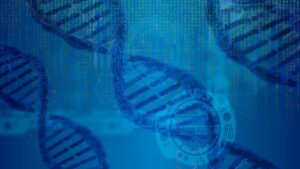Best free bioinformatics services for anyone that wants to know a bit more about bioinformatics. In the realm of bioinformatics, the convergence of programming languages and machine learning algorithms has revolutionized the analysis and interpretation of biological data. Free bioinformatics services that leverage these tools have democratized access to advanced analytical techniques, empowering researchers worldwide. This article delves into some of the best free bioinformatics services that utilize programming languages and machine learning algorithms to facilitate genomic and proteomic analysis.
The Intersection of Programming Languages and Machine Learning in Bioinformatics:
Programming languages such as Python, R, and Perl have become indispensable tools in bioinformatics due to their flexibility, scalability, and extensive libraries tailored for biological data analysis. Machine learning algorithms, ranging from classification and clustering to deep learning, offer sophisticated methods for pattern recognition, predictive modeling, and data interpretation in genomics and proteomics.
Best Free Bioinformatics Services:
1. Bioconda: Open-Source Bioinformatics Software Distribution
Bioconda is an open-source distribution of bioinformatics software built for the Conda package manager. It provides a vast collection of bioinformatics tools and libraries, enabling users to easily install and manage various software packages using programming languages such as Python, R, and Perl. With a collaborative community, Bioconda facilitates the integration of cutting-edge bioinformatics algorithms into research pipelines.
2. BioPandas: Python Library for Molecular Structures
For researchers working with molecular structures, BioPandas is a valuable Python library. It facilitates the manipulation and analysis of molecular data in a Pandas DataFrame format. With BioPandas, users can efficiently handle and analyze biological structures using the powerful programming capabilities of Python.
3. BioPython: A Comprehensive Bioinformatics Library – Python Tools for Computational Biology
BioPython is a freely available collection of Python tools for computational biology and bioinformatics. It simplifies tasks such as parsing biological data formats, accessing online databases, and executing sequence analysis. The library is designed to be accessible to beginners while offering advanced features for experienced programmers, making it a versatile tool for bioinformatics tasks.
4. BioPerl, BioJava, BioRuby:
BioPerl, BioJava and BioRuby are an open-source projects that provide toolkits for bioinformatics in Perl, Java, and Ruby, respectively. It enables the development of bioinformatics applications and workflows using these programming languages. They covers a wide range of functionalities, including sequence analysis, structural biology, and phylogenetics. Their versatility and active community make them valuable resources for bioinformaticians.
5. scikit-bio:
scikit-bio is an open-source bioinformatics library for Python, focusing on data analysis and statistical tools. It seamlessly integrates with other scientific computing libraries like NumPy and SciPy, providing a comprehensive environment for analyzing biological data. Its machine learning capabilities make it an attractive choice for researchers aiming to incorporate predictive modeling into their analyses.
6. scikit-learn: Machine Learning in Python:
scikit-learn is a popular machine learning library in Python, offering simple and efficient tools for data mining and analysis. It provides algorithms for classification, regression, clustering, dimensionality reduction, and model evaluation. scikit-learn’s ease of use and extensive documentation make it suitable for researchers with varying levels of expertise in machine learning.
7. TensorFlow, Keras and PyTorch: Machine Learning for Genomic Predictions
TensorFlow, Keras and PyTorch are open-source machine learning frameworks built using Python. These frameworks enable researchers to develop and deploy sophisticated machine learning models for genomic and proteomic data analysis. TensorFlow’s scalability and Keras’s user-friendly interface make them powerful tools for tasks such as gene expression prediction, variant calling, and protein structure prediction.
8. EMBOSS (Multiple Languages):
The European Molecular Biology Open Software Suite (EMBOSS) is a comprehensive collection of free bioinformatics tools available in multiple programming languages, including C, Perl, and Java. EMBOSS offers a wide range of applications for sequence analysis, alignment, motif searching, and protein structure prediction, making it suitable for various research needs.
9. Bioinformatics Toolset in R: Bioconductor
Bioconductor is an open-source project based on the R programming language, specifically tailored for the analysis and comprehension of high-throughput genomic data. It offers a vast array of packages covering genomics, transcriptomics, and proteomics analyses. With its extensive documentation and user community, Bioconductor is a robust choice for researchers utilizing R in their bioinformatics workflows.
10. DeepChem:
For researchers delving into cheminformatics and drug discovery, DeepChem is a free, open-source library for deep learning in chemistry. It provides a Python API and utilizes popular deep learning frameworks such as TensorFlow and PyTorch. DeepChem empowers users to apply machine learning algorithms for tasks like molecular property prediction and drug discovery.
11. Galaxy: An Open Platform for Data-Intensive Biomedical Research and Genomic Analysis Workflows
Galaxy is an open, web-based platform that simplifies the creation and execution of bioinformatics workflows. It allows researchers to design custom analysis pipelines using a graphical interface. Galaxy supports a variety of programming languages and bioinformatics tools, making it an accessible and powerful resource for genomic research without the need for direct programming.
12. MOE: Molecular Operating Environment
MOE, developed by Chemical Computing Group, is a comprehensive molecular modeling and drug discovery platform. While the full version is a commercial product, MOE provides a free version with a wide range of functionalities. Researchers can leverage its scripting capabilities using the MOE Python API to integrate their workflows and conduct in-depth analyses.
13. EMBL-EBI’s Bioinformatics Tools and Services: A Treasure Trove for Researchers
The European Bioinformatics Institute (EMBL-EBI) offers an extensive suite of bioinformatics tools and databases without any cost. These tools cover a wide range of applications, including sequence analysis, structure prediction, and functional annotation. Leveraging programming languages like Python and Java, EMBL-EBI’s services are designed to cater to both beginners and experienced researchers.
14. MLseq: Machine Learning for Genomic Data Analysis
MLseq is an open-source R package that focuses on integrating machine learning algorithms into genomic data analysis workflows. It provides functionalities for tasks such as classification, regression, and feature selection. By combining the power of R with machine learning, MLseq empowers researchers to extract meaningful patterns from genomic data without incurring any costs.
15. UCSC Genome Browser: Navigating Genomic Data with Ease:
The UCSC Genome Browser is a widely used, free platform for visualizing and analyzing genomic data. It supports various programming languages through its API, allowing users to programmatically retrieve and manipulate genomic information. With its extensive database and user-friendly interface, the UCSC Genome Browser is a valuable tool for exploring genomic landscapes.
16. Ensembl:
Ensembl is a genome browser that provides access to a comprehensive set of genomic data, including gene annotations, comparative genomics, and variation data. It supports multiple organisms and offers various tools for data analysis.
17. NCBI (National Center for Biotechnology Information):
NCBI provides a plethora of bioinformatics tools and databases freely accessible to the public. Services such as BLAST (Basic Local Alignment Search Tool) for sequence similarity search, PubMed for literature search, and GenBank for DNA sequence database are invaluable resources for researchers worldwide.
18. ExPASy – SIB Bioinformatics Resource Portal:
ExPASy provides a collection of bioinformatics tools and databases for protein sequence analysis and proteomics research, including tools for protein analysis, nucleotide sequence databases, and 3D structure databases. Tools such as PROSITE for protein motif analysis, SWISS-MODEL for protein structure prediction, and PROSITE for protein domain analysis are freely accessible to the public.
19. Bioinformatics.org:
Bioinformatics.org is a community-driven platform that provides various bioinformatics resources, including forums, tools, and educational materials for bioinformaticians.
20. BioMart:
BioMart is a data federation system that provides a unified interface to query and integrate data from multiple biological databases.
21. InterMine:
InterMine is an open-source data warehouse system that allows users to integrate and analyze biological data from various sources. It’s particularly useful for data mining and querying large datasets.
22. T-BioInfo:
T-BioInfo offers various bioinformatics tools and resources, including interactive web-based applications for genomics and systems biology analyses.
Conclusion:
The field of bioinformatics is flourishing with free and powerful tools that leverage programming languages and machine learning algorithms. Whether you are a beginner or an experienced bioinformatician, these resources offer a rich set of features to analyze and interpret biological data without the constraints of payment. As the landscape continues to evolve, these free bioinformatics services play a pivotal role in democratizing access to advanced computational tools and fostering collaborative research endeavors.


